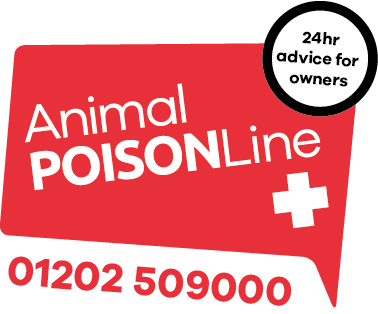Cough & Cold Medicine Poisonings
With colds (and viruses!) rife at this time of the year, many of us may have preparations on hand to alleviate the associated symptoms. Many preparations are readily available (tablets, capsules, drops, sachets, sprays and syrups) and these may contain several active constituents. The types of drugs commonly encountered are analgesics, antihistamines, cough suppressants, decongestants and stimulants.
The analgesics commonly found are paracetamol and ibuprofen, but also include aspirin.
Cough suppressants, such as codeine or dextromethorphan, are generally present in dry or tickly cough medicines in varying amounts, and although the commonly seen side effects may include drowsiness, lethargy, depression, weak legs and vomiting, severe cases are rare.
Ephedrine, phenylephedrine and pseudoephedrine are present in products formulated to act as decongestants. Severe effects are generally not expected, however some animals may exhibit signs of vomiting, lethargy and hyperactivity.
Antihistamines such as diphenhydramine and chlorphenamine (chlorpheniramine) provide symptomatic relief of allergic signs but in overdose may cause vomiting, hyper salivation, inco-ordination, weak legs, lethargy, tremor, depression, hyperthermia, a fast heart rate and weakness. Each antihistamine has its own specific treatment dose, so if you have any concerns please keep the original package or package insert.
Stimulants such as caffeine may cause signs of cardiac stimulation and nervous system excitation if sufficient quantities are ingested. Treatment would be dependent on the amount ingested, but the prognosis would be good as long as treatment is promptly administered.
In any case of overdose or accidental ingestion each component of the preparation must be considered separately, and it is very important that we have the exact trade name of the product involved so that we can identify the medicines and their precise quantities in any given situation.
If you are worried that your pet may have accidentally ingested a cold or cough medicine, then there is an excellent service run by a team of veterinary poison specialists. They can help you decide whether a visit to the vets is necessary and will coordinate with our vets to determine the best treatment course.
This is available for all cases of poisoning.

